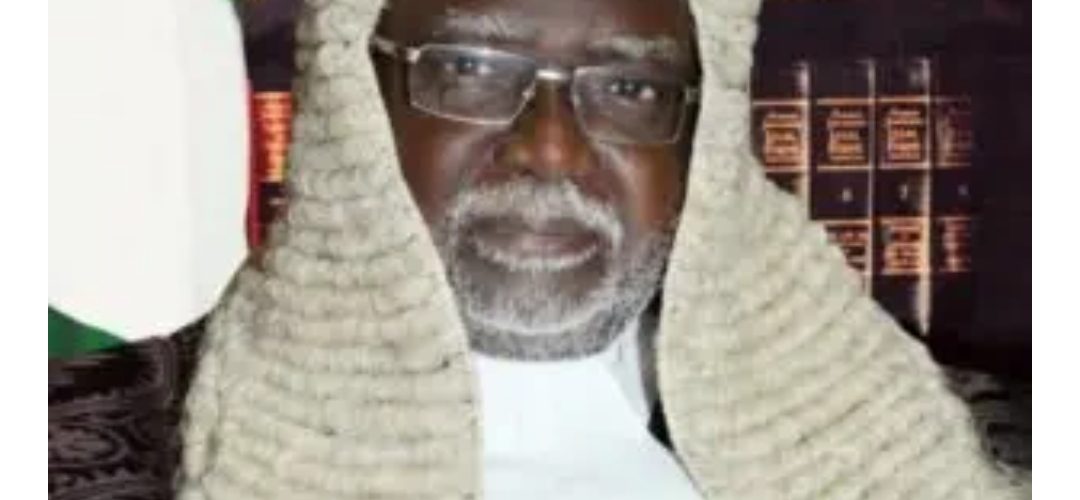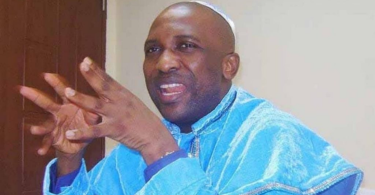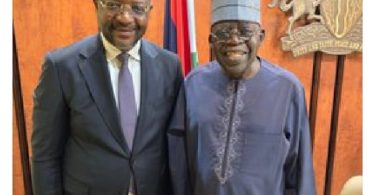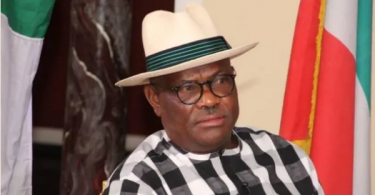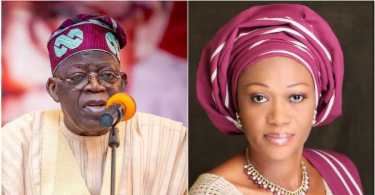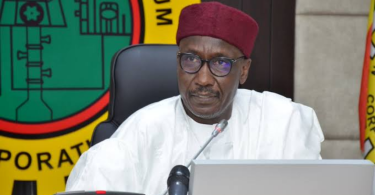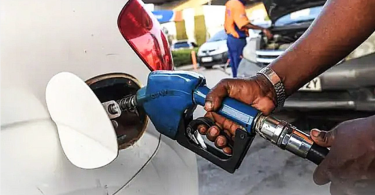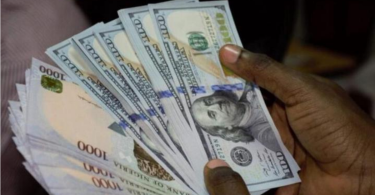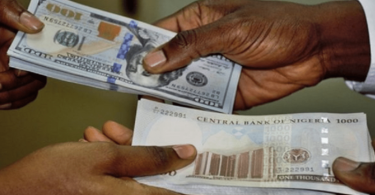Checkout top Supreme Court Judges who may decide Nigeria’s next president
As parties displeased with the outcomes of February 25, 2023, presidential election head for court, The ICIR reports that the cases will most likely get to the Supreme Court, given similar cases in the past.
Following what many see as controversial pronouncements by the apex court in recent times, The ICIR’s Marcus Fatunmole and Theophilus Adedokun, in this piece, profile the current 13 justices of the Supreme Court, including some of the recent cases they handled and accompanying public opinions that greeted their outcomes….. Continue Reading
The 2023 presidential result
INEC declared the candidate of the All Progressives Congress (APC), Bola Tinubu, the election winner at about 4 a.m. on Wednesday, March 1.
The Chairman of the Commission and the returning officer for the 2023 Presidential Election, Mahmood Yakubu, said Tinubu polled 8,794,726 votes.
The candidate of the Peoples Democratic Party (PDP) and former Vice President Atiku Abubakar finished second with 6,984,520 votes. (The ICIR reportedhow hope dims for Atiku after six failed shots at the presidency.)
Labour Party (LP) candidate Peter Obi came third in the February election with 6,101,533 votes, while Rabiu Kwankwaso of the New Nigeria Peoples Party (NNPP) had 1,496,687.
Twelve other candidates got fewer votes than the four major political parties at the election.
PDP and LP have claimed they won the poll and would be heading to court to challenge its outcome.
Some of the previous judgements bothering on elections by the Supreme Court
In December 2008, the court upheld the election of late President Musa Y’adua, despite admitting it was flawed.
The former Military Head of State and now incumbent President Muhammadu Buhari and Atiku Abubakar, who vied for the presidency against Yar’Adua, challenged his victory.
Yar’Adua succeeded former President Olusegun Obasanjo on a joint ticket he held with former President Goodluck Jonathan. Jonathan assumed office after Yar’Adua died in office.
In January 2020, The ICIR reported how six governors reclaimed their mandates through the Supreme Court since the nation returned to democracy in 1999.
The Supreme Court justices and some of the cases they have handled
Chief Justice of Nigeria (CJN) Olukayode Ariwoola
The Chief Justice of Nigeria, Olukayode Ariwoola, was appointed a Justice of the Supreme Court of Nigeria in 2011. He was at the Court of Appeal between 2005 and 2011.
He represented the then Acting Chief Justice of Nigeria, Tanko Muhammad, on the five justices that ruled on the nullification of all votes that the APC got in all elections conducted in Zamfara State in 2019 because the party did not conduct a valid primary.
He was among the eight-man Supreme Court justices who removed the PDP’s Emeka Ihedioha and declared Hope Uzodinma, a INEC declared to have come fourth in the 2019 governorship election, winner.
He was also among the five-man justices that unanimously nullified the election of APC candidate David Lyon and his Deputy, Biobarakuma Degi-Eremieoyo, in Bayelsa State in February 2020.
The court sacked the APC candidate because his deputy, Degi-Eremieoyo, presented a forged document to INEC.
The court declared the PDP candidate, Duoye Diri, the election winner.
Kudirat Motonmori Olatokunbo Kekere-Ekun
Kudirat Motonmori Olatokunbo Kekere-Ekun was born on May 7, 1958. She obtained her LL.B. in 1980 from the University of Lagos. She proceeded to the London School of Economic and Political Science in November 1983 for her LL.M. She was appointed a Justice of the Supreme Court of Nigeria on June 8, 2013.
She read the judgement that sacked Emeka Ihedioha as the governor of Imo State on January 14, 2020.
The seven-man panel was led by the former Chief Justice of Nigeria (CJN), Ibrahim Muhammad Tanko.
Kekere-Ekun was also among the seven-man justices who declared Kogi State Governor Yahaya Bello the winner of the 2019 governorship election and dismissed the PDP’s Musa Wada’s appeal.
John Inyang Okoro
Justice John Inyang Okoro was born on July 11, 1959, in Nung Ukim, Ikono Local Government Area of Akwa Ibom State.
After serving in different capacities, including Akwa Ibom State High Court judge, he was elevated to the Supreme Court on November 15, 2013.
He was part of the five justices that ruled on the nullification of all votes that the APC got in Zamfara State in the 2019 election because the party did not conduct a valid primary.
He was also among the five-man justices that unanimously nullified the election of APC candidate David Lyon and his Deputy, Biobarakuma Degi-Eremieoyo, in Bayelsa State in February 2020.
Okoro was also among the seven-man justices who declared Kogi State Governor Yahaya Bello the winner of the 2019 governorship election and dismissed the PDP’s Musa Wada’s appeal.
Chima Centus Nweze
Chima Centus Nweze is a native of Obollo, Udenu Local Government Area of Enugu State. He was born on September 25, 1958.
He became a justice of the Supreme Court in 2014 after serving at the Court of Appeal between 2008 and 2014.
He was among the five-man judges who declared the Senate President, Ahmed Lawan, winner of the Yobe North senatorial ticket for the APC, and consequently dashed the hope of Bashir Machina, who claimed Lawan did not participate in the primary. He read the lead (split) judgement of three to two justices affirming Lawan as the party’s candidate.
Amina Adamu Augie
Amina Adamu Augie was born Anne Eva Graham on September 3, 1953. She is from Kebbi State. She served as the Chief Magistrate in the Sokoto State Judiciary, a lecturer at the Faculty of Law, Uthman Danfodio University, Sokoto, from 1989 – 1992, and an Associate Lecturer at the same University from September 1999 – September 2002.
She was elevated to the Court of Appeal Bench in 2002 and consequently rose to become a Supreme Court justice on November 7, 2016.
She was among the eight-man Supreme Court justices who removed the PDP’s Emeka Ihedioha and declared Hope Uzodinma, a serving senator INEC who declared to have come fourth in the 2019 governorship election, winner.
She was among the five-man justices that unanimously nullified the election of APC candidate David Lyon and his Deputy, Biobarakuma Degi-Eremieoyo, in Bayelsa State in February 2020.
Justice Augie was also part of the seven-man justices who declared Kogi State Governor Yahaya Bello the winner of the 2019 governorship election and dismissed the PDP’s Musa Wada’s appeal.
Uwani Musa Abba Aji
Uwani Musa Abba Aji was born on November 7, 1956, in Gashua, Yobe State. The first lady judge at the Yobe State judiciary, she has held several positions among Nigerian women judges and is widely travelled.
She rose through the ranks to become a Supreme Court justice on January 8, 2019. Before her rise to the Supreme Court, Justice Abba Aji was the Presiding Justice of the Court of Appeal, Kaduna Division, for four years.
She was part of the five justices that ruled on the nullification of all votes that the APC got in Zamfara State in the 2019 election because the party did not conduct a valid primary.
He was among the eight-man Supreme Court justices who removed the PDP’s Emeka Ihedioha and declared Hope Uzodinma the 2019 Imo State governorship election winner.
Abba Aji was among the seven-man justices who declared Kogi State Governor Yahaya Bello the winner of the 2019 governorship election and dismissed the PDP’s Musa Wada’s appeal.
Mohammed Lawal Garba
Mohammed Lawal Garba was born on November 16, 1958. He hails from Gusau Local Government Area of Zamfara State.
He cut his Magistraterial teeth at the Sokoto State Judiciary from 1982-1986. He was appointed a Judge of the High Court of Justice, Sokoto State, from 1993-1996, before his elevation to the Court of Appeal, where he served at various times as the presiding justice at Abuja, Calabar, Port Harcourt and Lagos Divisions of the Court from 2010-2020.
He was elevated to the Supreme Court on November 6, 2020.
He was among the five-man judges who declared the Senate President, Ahmed Lawan, winner of the Yobe North senatorial ticket for the APC.
Helen Moronkeji Ogunwumiju
Helen Moronkeji Ogunwumiju was born in Ondo, Ondo State, on March 23, 1957.
She had a stint with the Legal Aid Council, helping to create the Council’s offices in Oyo, Osun, Lagos, Sokoto and other states.
Ogunwumiju was appointed a judge of the High Court of Ondo State in November 1998, with jurisdiction in civil and criminal matters. She got elevated to the Court of Appeal, Nigeria, in November 2005 and to the Supreme Court on November 6 2020.
She was among the three judges, out of five, who ruled that Senate President Ahmed Lawan won the Yobe North senatorial ticket for the APC.
Ibrahim Mohammed Musa Saulawa
Ibrahim Mohammed Musa Saulawa was born on September 29, 1956, in Katsina, Katsina State.
He was a chief registrar of the Court of Appeal of Nigeria, Lagos, between 1991 and 1994, and then a High Court judge, Katsina State Judiciary (1994 – 2006).
Saulawa was elevated to the Bench of the Court of Appeal of Nigeria on June 10, 2006. He served in most court divisions, including Calabar, Ilorin and Port Harcourt.
He rose to become a justice of the Supreme Court on November 10, 2020.
Adamu Jauro
His profile was unavailable on the Supreme Court’s website. The ICIR could not find information about him on other public platforms, but he was among eight justices elevated to the Supreme Court in 2020. He is also the first Gombe State indigene to rise to the apex court.
He was among the two justices who disagreed with three others that declared the Senate President, Ahmed Lawan, winner of the Yobe North senatorial ticket for the APC.
Tijjani Abubakar
He was among the eight justices the Nigerian Judicial Council promoted to Supreme Court in 2020. Information about him is not on the Supreme Court website.
Emmanuel A. Agim
Born on April 26, 1960, in Obudu, Cross River State, Justice Agim read law at the University of Calabar. He was a former Chief Justice of The Gambia and Justice of the Supreme Court of Swaziland.
He was among the eight justices the Nigerian Judicial Council promoted to Supreme Court in 2020.
He was among the two justices who disagreed with three others that declared the Senate President, Ahmed Lawan, winner of the Yobe North senatorial ticket for the APC.
Musa Dattijo

Musa Dattijo Muhammad was born on October 27, 1953, in the chanchaga local government area in Minna. He got his LLB (Hons) at Ahmadu Bello University (Faculty of Law) Zaria 1973-1976, and his BL at the Nigerian Law School 1977, before proceeding to Warwick University Coventry UK for his LLM 1982-1983.
Before he was appointed a Supreme Court judge in July 2012, he had worked as a judge of the High Court, Niger State, in 1989, as justice of the Court of Appeal in 1998, as presiding Justice, Sokoto Division, Court of Appeal in 2009 and Presiding Justice, Port Harcourt Division in 2010.
Should the petition gets to the supreme court… lawyers react
An Abuja-based legal practitioner, Sogo Clinton, who specialises in election litigations, said that nobody could predict the outcome of a court matter, especially when a person is not privy to the facts and evidence before the court.
“This is so as the outcome of a matter largely depends on the evidence supplied by the alleging party. It is not the court’s duty to descend into the arena in a bid to please the overwhelming public in the absence of credible evidence.”
According to Clinton, the rule of the game concerning election petitions is for the petitioners to prove substantial non-compliance with the Electoral Act and the guidelines for conducting elections in Nigeria.
Sogo, however, said that although no presidential election has been nullified in Nigeria’s history, it is possible if the prosecuting parties can prove their case.
“Once that is done to the court’s satisfaction, then the prayer for nullification of an election may be granted. Although no presidential election has been nullified in Nigeria’s history, I dare say that it is not impossible if the petitioners should prove their case.”
He added that justice is usually decided by many factors, including but not limited to evidence, the law, and technicalities, which must all be satisfied to get justice.
“Therefore, a person might have overwhelming evidence and the law on their side but may still not get justice due to technicality.
When this happens, it appears like an injustice has been meted out in the perception of the ordinary man.”
Similarly, a Lagos-based lawyer, Paul Ojukwu, said Nigerians needed to be cautious of casting aspersion on the judiciary based on the judgement that its judges deliver because, most times, the court delivers judgement based on fact and not emotion.
“Most time, the courts deliver judgement based on facts and issues presented to it, and it is not that the Supreme Court does not deliver questionable judgement like the case of Lawan and Machina, Akeredolu and Jegede but the one that brought Oyetola in and remove Adeleke are sound judgement.
“The judges are human beings. I would not say in general that I do not have confidence in the judiciary. I do, but in the history of democracy in Nigeria, upturning the presidential election has not happened, and it may likely not happen.
Ojukwu said many factors go into judgement delivery at the apex court.
“There is what we call substantial compliance, and it is different from non-compliance. So far, nobody has come out to say that what INEC uploaded on IREV differs from what the party agents signed.”
Another lawyer, Kelechukwu Uzoka, opined that the court would act based on the facts before it.
He said the court could only upturn Tinubu’s victory if it saw reasons to do so, adding that such would be done in the interest of justice.
Uzoka said that although the public confidence in the court was very low, he believed the court would be non-partisan in delivering justice.
“The truth is that generally, the public confidence in the Supreme Court is low at this time. So we hope the court will put its foot on the ground and shun external influence of politicians to be able to do justice.”
He further stressed the need for the court to be more firm and impartial in justice delivery……

